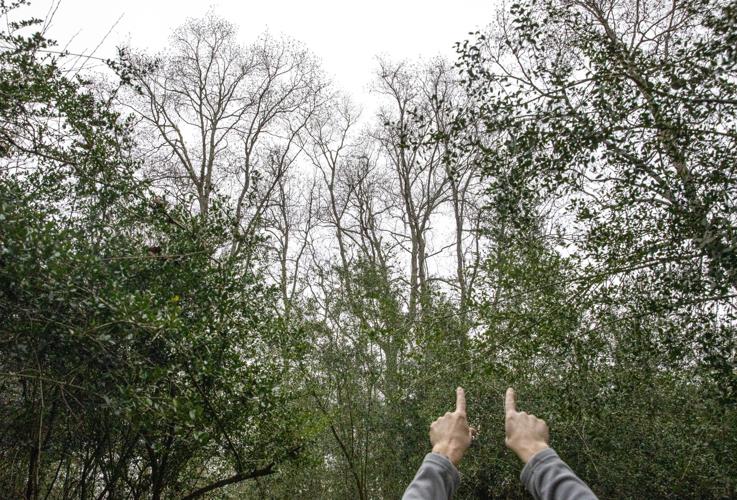The invasive Chinese tallow tree found along the South Carolina coast is so aggressive it can turn marsh areas to scrub lands. To help control its spread, the U.S. Department of Agriculture has proposed issuing permits to release Asian beetles and moths into the affected environments.
The USDA said scientists believe releasing the insects won’t have a significant impact on the environment, but the agency has opened its assessment to the public for review and comments through Feb. 22.
Tallow is one of the most aggressive and widespread invasive weeds in the southeastern United States, the USDA said. To date, the plant has been reported primarily in 10 states, including South Carolina, North Carolina and Georgia.
The USDA describes tallow as a weed with dark green bark and hairless leaves that could grow as a large shrub or a tree reaching up to 60 feet tall.
The plants are often called “popcorn trees” because when their seedpods open, they resemble a small kernel of popcorn.
“It’s got this foamy white thing around the seed, and anytime those drop in the water, they just float down the stream or creek or whatever,” said Dr. David Coyle, a forest health and invasive species professor at Clemson University.
This causes the plant to spread easily.
Coyle said there is no real value to the plants. They can’t be used for lumber or anything like that. But they essentially just take over and crowd out any other plants.
“So the natives pretty much get pushed out,” Coyle said.
Because the Chinese tallow is a non-native species, not many insects or birds in the United States are attracted to them.
Coyle said the moths and beetles the USDA has proposed to release would not kill the plant. The hope would be that as the population gets high enough, the insects would reduce the growth and seed production of the tallow.
“Existing options for management of tallow, such as chemical, physical, and mechanical control, provide only temporary solutions that require retreatment and are harmful to non-target species associated with the weed,” according to the USDA’s Animal and Plant Health Inspection Agency.
That is why the non-native insects have been recommended to control the plants.
“A lot of times, that’s how that bio-control works,” Coyle said. “You’ve got to go back to that country of origin to actually find something that eats that plant.”
Small beetles called Bikasha collaris are being recommended to control the tallow tree. Unlike the Asian longhorned beetles that have infested Charleston County, these insects are not expected to have significant environmental impacts.
The timeline for the acceptance or denial of the USDA’s proposal is unclear. Folks who want to view the environmental assessment can go to regulations.gov.












